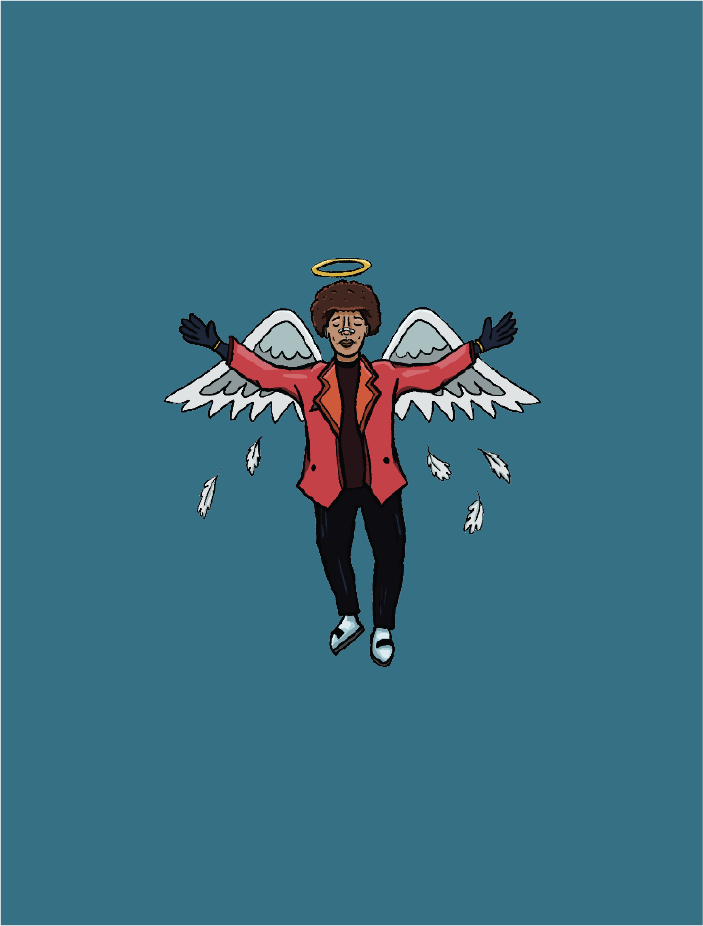Canadian singer and songwriter Abel Tesfaye, known by his stage name The Weeknd, plans to complete his recent musical trilogy of albums in late 2024 with the release of “Hurry Up Tomorrow.” With his existing record releases “After Hours” and “Dawn FM,” The Weeknd has created a creative depiction of his personal struggles, and this album will conclude both his story and his career under his current moniker.
“I’m going through a cathartic path right now,” Tesfaye said in a 2023 interview with W Magazine. “It’s getting to a place and a time where I’m getting ready to close the Weeknd chapter.”
Upbringing and Early Career
In an interview with The Guardian, Tesfaye revealed that his father left shortly after he was born and his mother worked four jobs. He abused hard drugs and dropped out of school at 17, stealing from stores, partying and living with no life plan.
These behaviors characterized the themes presented in his first album, which is named Trilogy. Dark, moody instrumentals mixed with haunting vocals that depict his scandalous habits embody this artistic piece.
However, over the course of four records — “Kissland,” “Beauty Behind the Madness,” “Starboy” and “My Dear Melancholy” — his sound has dramatically shifted from his Trilogy days, with peppy percussion and flamboyant vocals coming to define his modern music. Some listeners attribute the artist’s transformation to pop-like music to a desire to maintain his appeal to a wider audience while others believe he’s attempting to steer away from his dark past.
After Hours
Tesfaye’s intentions to separate from his current stage name may stem from his desire to escape the troubles of his early life, a theme prevalent throughout his work’s lyrics and music videos. This desire is most evident in his “After Hours” era, when his public appearances featured theatrical facial bandages and injuries. Lyrically, the record explores self-loathing, heartbreak, isolation and escapism while musically, the tracks embody an R&B dream-pop style.
In the music videos, his alter ego’s image becomes increasingly injured as the album progresses, culminating in his final song “Until I Bleed Out,” in which he sings about his own death as he bleeds out in a desert.
Dawn FM
After his character’s death in his storyline, Tesfaye’s “Dawn FM” takes listeners through the next step of his resurrection journey as actor Jim Carrey narrates throughout the tracks. Similar to “After Hours,” The Weeknd altered his image once again, appearing as a dramatically aged version of himself on the album cover.
“Picture the album being like the listener is dead,” Tesfaye said in an interview with Billboard. “They’re stuck in this purgatory state, which I always imagined would be like being stuck in traffic waiting to reach the light at the end of the tunnel. And while you’re stuck in traffic, they got a radio station playing in the car, with a radio host guiding you to the light and helping you transition to the other side. So it could feel celebratory, could feel bleak, however you want to make it feel, but that’s what ‘The Dawn’ is for me.”
The musical style of “Dawn FM” fully engages with the retro sound that “After Hours” only experiments with, taking inspiration from ‘80s funk and electronic dance styles. The record produces a psychedelic radio aesthetic that serves as a backdrop for themes of existentialism and repentance. Through his lyrics, The Weeknd shows awareness of his actions and expresses his regret for emotionally abusing his romantic partners.
In the final track, Carrey’s narration forces The Weeknd’s character to acknowledge and confront his actions, but also offers an opportunity to achieve salvation by releasing his regret, saying “you gotta be heaven to see heaven.”
Hurry Up Tomorrow
According to Tesfaye, the conclusion of this trilogy also marks the end of his path towards spiritual cleansing, with “After Hours,” “Dawn FM” and “Hurry Up Tomorrow” representing his arcs of death, purgatory and rebirth respectively. “Hurry Up Tomorrow” will mark the end of this trilogy, serving as a grand conclusion to his creative interpretation of his personal story.
It is unclear what the next steps are for Tesfaye’s alter ego, but his final stretch to rebirth is sure to be revealed in his upcoming album, which he has already begun teasing. In September 2024, The Weeknd released “Dancing in the Flames,” the first released single of his new album, which met widely positive reception for its lighter, pop-like sound accompanied by the artist’s signature ‘80s synths. The song also revisited the nihilistic themes common throughout his two most recent records.
Musically, it’s expected that The Weeknd will continue the themes he has been constructing over the last four years while expanding into new fusions of pop and R&B with his rebirth arc. He is likely dive even further into his signature synth-pop music. But from this record, fans are most hopeful for a glimpse into what his career will look and sound like after retiring the “Weeknd” name and launching into a career as only Abel Tesfaye, ending a near 14-year career and a decade-long prominence in the music industry.
“The album I’m working on now is probably my last hurrah as The Weeknd,” he added about his upcoming collection in the same W Magazine interview. “This is something that I have to do. As the Weeknd, I’ve said everything I can say.”












